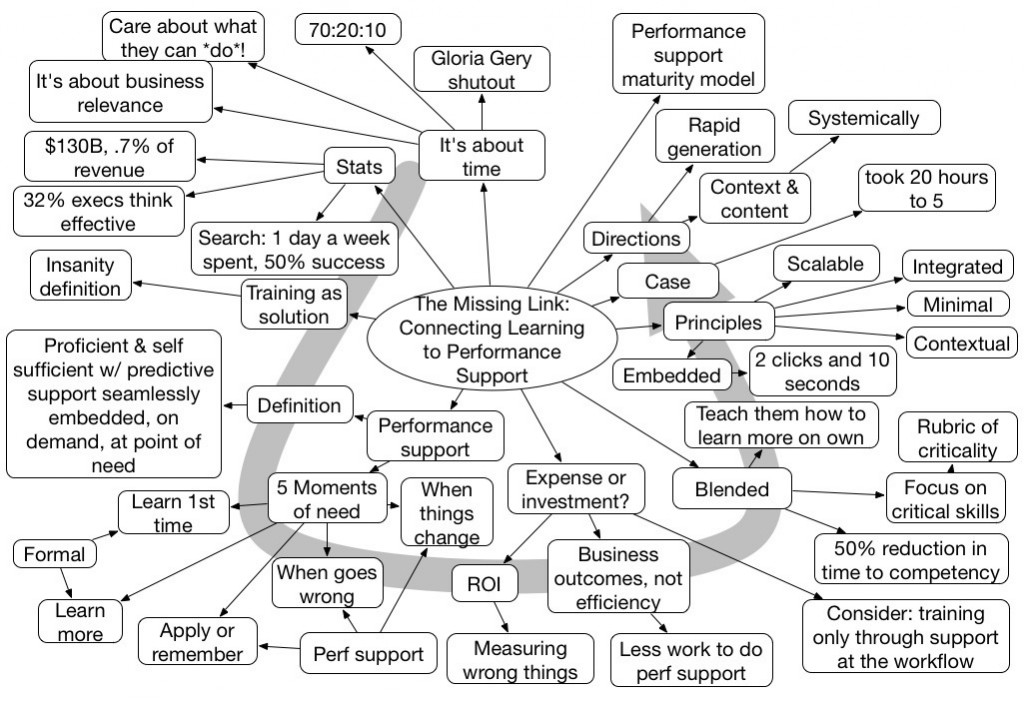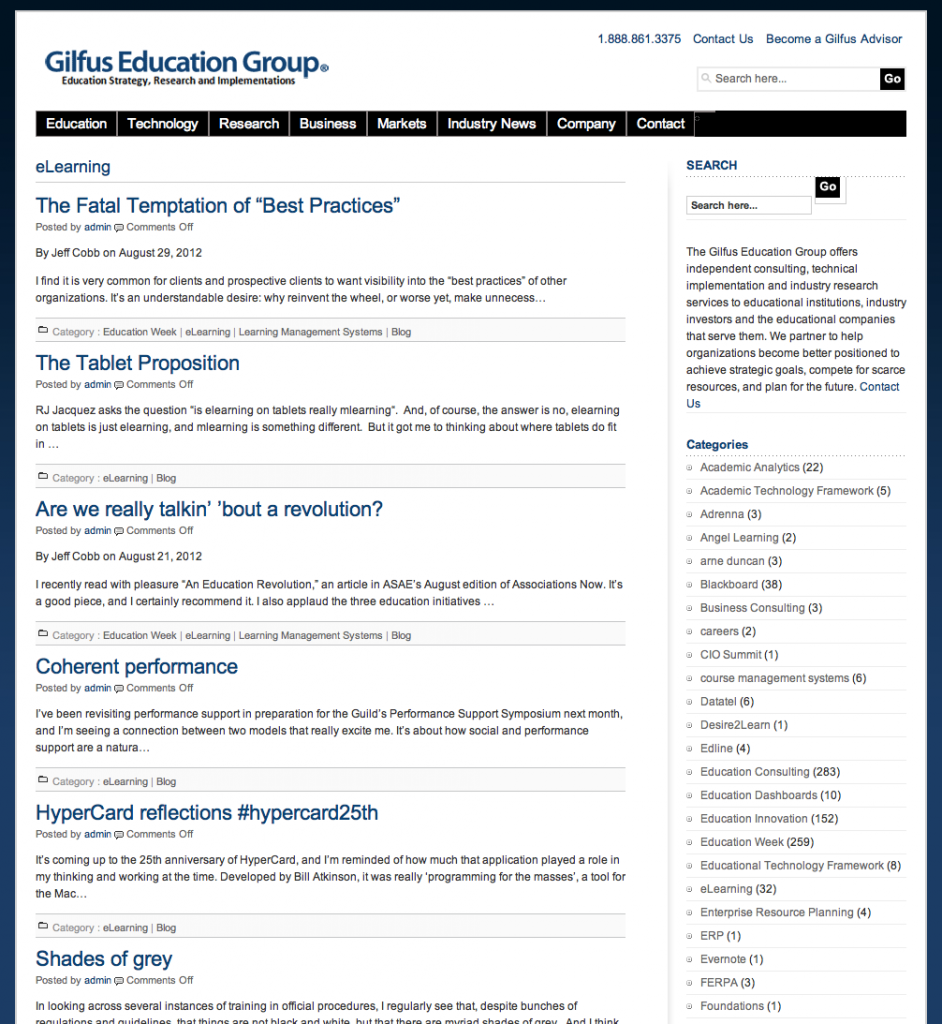Last week’s #lrnchat touched on an important topic, experience design. I’ve talked about this before, but it’s worth taking several different cuts through it. The one I want to pursue here is the notion of transformative experience design.
A number of years ago, now, Pine & Gilmore released a book talking about an Experience Economy. In it, they posited that we’d gone from the agricultural economy, through a product and service economy, to what they termed an ‘experience economy’: where people paid for quality experiences. You can see this in themed cruises & restaurants, Apple’s product strategy, Disney, etc. I think it’s a compelling argument, but what really struck me was their next step. They argued that what was due next was a ‘transformation economy’, where people paid for experiences that change them (in ways that they desire or value).
And I argue that that’s what my book Engaging Learning was all about, how to create serious games, which really are experiences with an end in sight. The point here is not to tout the book, but instead to tout that a meld of experience design and learning design, learning experience design, is the path to this end.
There are things about experience design that instructional design largely ignores: emotion, multiple senses, extended engagement. While I feel that not enough has been written systematically about experience design (interface design yes, but not the total cross-media picture, e.g. Disney’s Imagineering), their intuitive approaches acknowledge recognizing the ebb and flow of emotions – motivation, anxiety – and beliefs about one’s role (epistemology, there I said it).
On the other hand, learning design is (properly done) grounded in cognitive science, with empirical results, but is incomplete in breadth. We know what we do, but our view is so limited!
Together, the whole is greater than the sum of the parts. It’s about thinking beyond content, it’s about contextualizing, designing to “bewitch the mind and ensnare the senses”. Really, it’s about creating a magic experience that transcends content and truly is transformative. Are you ready to take that next step?


